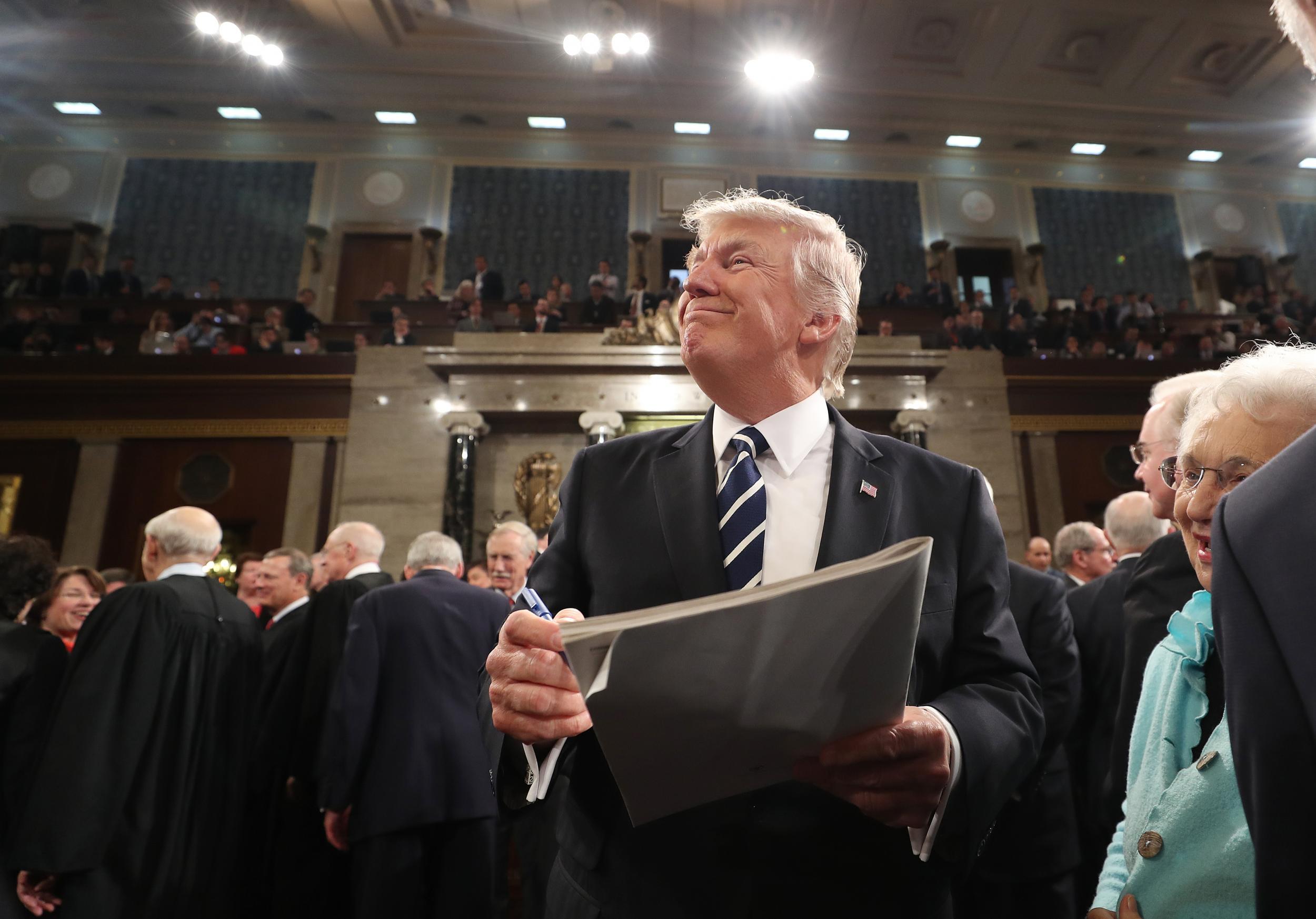Trump’s hike in military spending could spark an international arms race
Isolationism doesn’t only mean that you want to go it alone; it also means you have to be able to. But, in this atmosphere of uncertainty, other states are very likely to start boosting their own defence expenditure to make sure they can cope with any unexpected events

Based on his first month in office, ‘rational’ isn’t the word that springs to mind when thinking of President Donald Trump’s decision-making. From his botched travel ban and changing stance on the decades-old “One China” policy, to his apparent realisation yesterday that healthcare is complicated, his tenure so far has been marked more by impulsivity than by strategic thinking.
So Trump merely seemed to be conforming to this trend on Monday, when he announced his intention to increase defence spending by 10 per cent, or $54 billion, a change that would necessarily require big budget cuts for other vital departments. In last night’s speech to Congress the President said that he is calling for, “one of the largest increases in national defence spending in American history”. But is this really just another illogical move in an ever more bizarre game of presidential chess?
Taken at face value, it would seem to be. After all, why should President Trump increase defence expenditure by so much when he has been absolutely clear that he wants a more isolationist, rather than more interventionist, US? For Trump’s America First policy, there will be no more boots on the ground, no more American deaths, and no more fighting “other people’s wars” unless America is confronted by an existential security threat.
But when considered carefully, this particular decision is actually completely logical – even strategic. In the first place, Trump is dismissive of Nato, because out of its 28 member states, only five meet the organisation’s requirement of spending 2 per cent of GDP on defence. Trump argues that this means the US is subsidising the security of other states and unless they start to spend more on defence, it looks as if the US will gradually pull away from Nato.
Whilst this plays well domestically for Trump, it also means that in future the US will not be able to appeal to its allies in times of need – a particular concern when there are emergent security threats in the Middle East, the Balkans, and the South China Sea. The US will struggle to create “coalitions of the willing” to deal with particular security threats, and have fewer allies to turn to, to deal with insecurities and to shape the world as it wants. The obvious solution to this is to bolster its military to ensure that it does not need to turn to others. Isolationism, ironically, doesn’t only mean that you want to go it alone; it also means you have to be able to.
For Trump, however, defence expenditure isn’t just a necessary move, it’s also a conveniently symbolic one. By spending more on defence, Trump not only gets to prop up his Republican credentials and play to a key area of domestic support, but it also – and far more importantly – allows him to send signals about what he values and what he doesn’t. It is no accident that foreign aid and climate change are taking the greatest financial hits.
And, just to gild the lily, there is an economic case, too. Defence expenditure, particularly in a more protectionist US, will allow him to channel billions of dollars into defence industries and manufacturers. From this, he will expect a substantial return in the form of tens or even hundreds of thousands of jobs, a thriving knowledge economy through research and development, spin offs and arms exports – as well as increased tax revenue.
Is this a masterstroke, then? No – it is a stroke with potentially disastrous implications. The problem is that Trump’s sudden decision to increase defence spending is likely to make other states even more nervous about what his intentions really are. Recent erratic behaviour over the new strategic arms reduction treaty with Russia has already raised hackles and caused concerns. In this atmosphere of uncertainty and instability, other states are very likely to start boosting their own defence expenditure to make sure they can cope with any unexpected events. Taken together, we may see a future where a number of states are rapidly bolstering their militaries. All this, of course, has happened before. The arms races of the Cold War saw the US and the USSR rapidly increase expenditure, to pile funding into experimental technology to make sure they retained technological advantage over each other.
Arms races do not make for a safer international system. They simply spur on others to build up their militaries in the event of major conflict. They pull funding from other priority areas such as development and climate change, potentially leading to global disasters of a different kind. Rather than creating a stable and balanced international world order, they create a febrile and inherently unstable environment – one which might ultimately require the use of the very resources which are being developed and stockpiled. The worry, therefore, is that Trump’s seemingly rational rearmament agenda will actually hasten an irrational regional or global confrontation.
Dr Benedict Wilkinson is Senior Research Fellow, The Policy Institute at King's College London.

Join our commenting forum
Join thought-provoking conversations, follow other Independent readers and see their replies